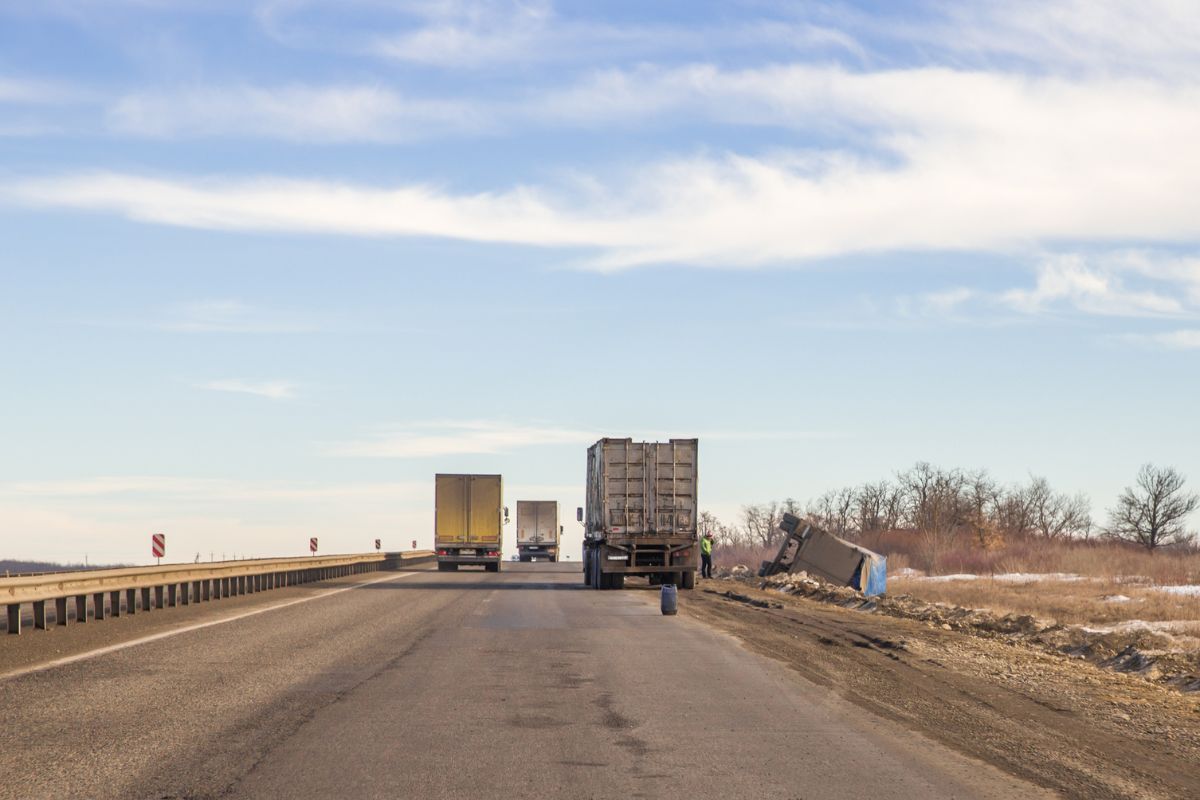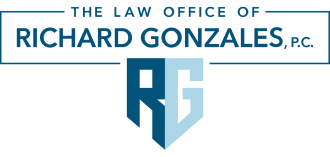
A commercial truck accident in Texas can leave you with severe injuries. Your injuries will almost certainly require costly medical treatment. They could also result in lost wages by preventing you from working. Depending on their severity, your injuries may cause paralysis, memory troubles, and other long-term difficulties.
Do you believe your wreck occurred because a truck driver or other party was careless? If so, you may be entitled to financial compensation. You could seek compensation by filing a claim with the at-fault party’s insurance company. But you must first determine who was at fault.
Richard Gonzales, The People’s Attorney for the Rio Grande Valley, can help. He is ready to assist you by investigating your accident to determine where the accident fault should lie.
Call the Law Offices of Richard Gonzales, P.C., today for a free, no-obligation consultation. Learn what an experienced, reputable Rio Grande Valley truck accident lawyer can do for you.
Who Could Be at Fault for a Truck Accident in Rio Grande Valley, Texas?
Determining who is at fault for commercial truck accidents in Texas is key when seeking compensation. You need to know who caused the collision when you submit a claim.
Parties who may be at fault after a Texas truck wreck include:
- The Truck Driver – Truck drivers may cause wrecks due to speeding, distracted driving, driving while fatigued, etc.
- The Trucking Company – A truck driver may be the party who directly causes a wreck. However, it’s the responsibility of the trucking company to hire drivers who obey the law and exercise caution. In addition, trucking companies must thoroughly train their drivers. If the trucking company engaged in negligent hiring or training practices, it may thus be at fault when a truck driver causes a crash. The trucking company may also be at fault if a collision results from a lack of vehicle maintenance.
- Designers and Manufacturers – Companies that design and manufacture commercial trucks or truck parts may be at fault when collisions occur because of a part malfunction. A designer or manufacturer might be to blame if an accident results from an overlooked defect.
- Other Motorists – Other motorists may cause truck collisions when they engage in dangerous driving. A crash could occur because a truck driver must suddenly respond to someone else’s risky maneuver.
- Shippers and Cargo Handlers – Some large truck crashes occur when cargo falls off trucks. The parties responsible for loading the cargo may be at fault when this happens.
- Repair Teams – A trucking company may hire an outside party to handle their repair and maintenance needs. The maintenance company might be at fault if a collision results from an improperly completed repair or an overlooked maintenance issue.
- Government Agencies – If a design defect in the road or lack of road maintenance causes a wreck, a government agency could be held liable.
Determining accident fault may require investigating the crash, which in turn requires the right experience and resources. Investigating a trucking collision to assign accident fault is a task an attorney can handle.
Liable Parties in a Truck Accident
Accident fault determination rules allow multiple parties to share liability. You might not receive all the compensation you’re entitled to if you file a claim with only one liable party’s insurance company. An experienced truck accident lawyer can investigate and identify all parties responsible for causing the accident that caused your injuries.
It’s worth noting that your crash may have occurred while you were working. If so, you could file a claim for workers’ compensation benefits. The advantage this option provides is that you don’t have to prove that anyone was negligent to receive compensation. You just need to prove you were performing your work duties as an employee at the time of your wreck.
However, according to the Texas Department of Insurance, workers’ comp in Texas only provides compensation for medical bills and partial wage replacement. It doesn’t cover losses like pain and suffering.
You may still file a personal injury truck accident claim even if you’ve filed a workers’ compensation claim. While you can’t sue your employer for negligence if you’re getting workers’ compensation benefits, you can file a claim or lawsuit against a third party whose negligence caused your wreck. Speak with a Rio Grande truck accident lawyer for more information about this option.
Commercial Driver’s License (CDL) Violations
A truck driver in the U.S. must have a commercial driver’s license (CDL). Along with abiding by all traffic laws, truck drivers must also comply with extra regulations for CDL drivers. The Federal Motor Carrier Safety Administration (FMCSA) lists common CDL violations, including:
- Operating a truck with a tire tread depth of less than 2/32 of an inch
- Having an inoperative turn signal
- Operating a vehicle whose parts and/or accessories have fallen into general disrepair
- Employing a driver with an incomplete driver qualification file
- Operating a commercial motor vehicle with a suspended CDL license
- Failing to use a seat belt
- Driving a commercial motor vehicle without first completing a pre-trip inspection
Truck drivers may lose their CDLs for violations. Additionally, if a truck accident victim can prove a violation occurred, showing they deserve compensation may be relatively easy.
This may be the case if the legal doctrine of “negligence per se” applies. This principle is based on the idea that a defendant is automatically negligent if they were breaking the law and their actions resulted in someone else’s injury.
Thus, if a truck driver or their employer committed a violation when your crash occurred, you might not have to prove they were negligent to obtain compensation from them. The doctrine of negligence per se states that the liable parties (truck drivers and/or trucking companies) are essentially negligent by default in this scenario.
A truck accident lawyer familiar with accident fault determination rules can review your case and determine whether negligence per se applies. Doing so may require securing police reports and other such records. A Rio Grande Valley attorney can review these to learn whether the negligent party committed a CDL violation.
Is Texas an At-Fault State?
If you’ve lived in another state, you might want to know whether Texas is an at-fault state. Some states use a no-fault system for car and truck accidents. Drivers in no-fault states must buy personal injury protection (PIP) insurance to compensate them for bodily injury expenses when collisions occur. Even if someone else causes a wreck, a driver in a no-fault state would seek compensation from their insurance.
Texas is different, as it uses the at-fault system. In the Lone Star State, the insurer of the negligent party who caused your wreck is responsible for compensating you.
The Three Negligence Laws
All states follow one of these three negligence laws/rules:
- Pure Contributory Negligence – If a victim’s negligence played any role in their crash or injuries, they’re not eligible for any compensation under this law.
- Pure Comparative Fault – The extent to which a victim’s negligence contributed to their injuries will affect how much compensation they may receive. However, they can still seek compensation even if they are mostly at fault.
- Modified Comparative Fault – A modified comparative fault law allows victims to receive compensation after crashes as long as they are not more than a specific amount at fault, usually 50 or 51 percent.
Texas law includes a “proportionate responsibility” statute. This statute is essentially a modified comparative fault law.
In Texas, the amount of compensation a truck collision victim may receive can depend on whether they were partially to blame for their injuries. If they are over 50 percent to blame, they are not eligible for any compensation.
For example, maybe a Texas truck accident victim has $100,000 in compensable losses. Perhaps the insurance company or another such party can show the victim’s injuries are due in part to their own negligence. If the victim is 25 percent at fault, the most they could collect would be $75,000.
That’s another reason investigating a truck wreck is vital. Gathering thorough evidence of accident fault can minimize confusion over whether a victim is at all responsible for their injuries. An experienced Rio Grande Valley truck accident attorney is best suited for this intricate task.
How Our Team of Rio Grande Valley Truck Accident Attorneys Can Help
The process of determining accident faults could involve various complex steps. Examples include:
- Reviewing police reports
- Collecting and reviewing photos/footage of the wreck or crash scene
- Interviewing witnesses
- Coordinating with collision reconstruction experts
- Reviewing maintenance logs and other company documents
In Richard Gonzales, you’ll find a Rio Grande Valley truck accident lawyer who can identify the at-fault parties in your case. By investigating your collision, he can ensure he’s seeking compensation from the appropriate sources.
Other ways in which a Texas truck collision law firm may assist you include:
- Determining approximately how much compensation you’re entitled to
- Completing paperwork and submitting your truck accident claim by any relevant deadlines
- Negotiating with the insurance company for a fair settlement
- Deciding whether you should sue and go to court if the insurer won’t make an appropriate, full, and fair offer
A truck accident can have a major impact on your quality of life. You should focus on your recovery in the aftermath. Richard is here to handle your case while you prioritize your health.
Learn more about what a compassionate Rio Grande Valley truck accident lawyer can do for you. Contact the Law Office of Richard Gonzales, P.C. online or call for a free, no-obligation case review today.


